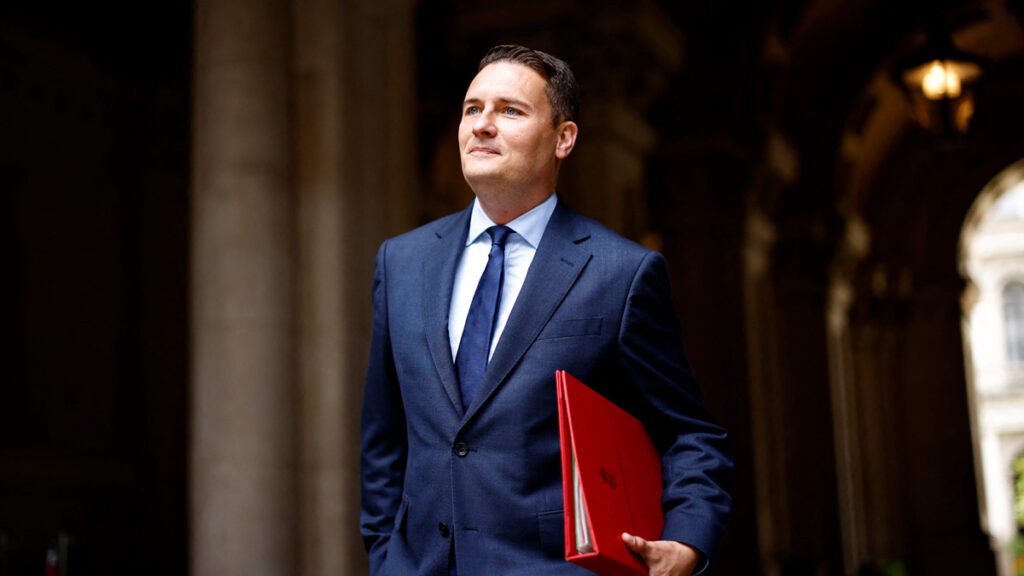The ageing economy is the big trend to watch
As Britain's population ages and birth rates decline, the sustainability of the state pension and NHS is in jeopardy

A few months ago, I gave a talk at Eton College. After pondering what I could say to these aspiring David Camerons and Boris Johnsons to get them thinking, I decided to begin the discussion with a bet.
I argued that in 50 years, when these teenagers are thinking about retirement, the state pension and NHS will be drastically different from today. The reason? Britain’s population is getting older and sicker, with more people unable to work for health reasons and too few children born to replace them.
This is not just tomorrow’s problem. The new Labour government has already set out the five missions it is seeking to deliver for the UK, including securing the fastest economic growth in the G7. I was in the audience when chancellor Rachel Reeves declared that it was Britain’s “national mission” to raise growth.
But while the Downing Street in-tray may already be bulging with issues like NHS waiting lists, overcrowded prisons and the challenge of getting immigration down, there is another problem. As the last baby boomer turns 65 this decade, Sir Keir Starmer will be confronted by a new reality: Britain’s workforce will lose its largest contingent at a time when the talent pool is already shrinking.
The trends are clear. Analysis by the Institute for Employment Studies (IES) shows there are nearly 2 million more people in their 50s and 60s today than there were a decade ago and 100,000 fewer people in their 20s, 30s and 40s.

Big shifts in the jobs market are already underway. Since the start of the millennium, employment among working-age people has grown by roughly 250,000 every year amid steady increases in yearly net migration.
However, this is estimated by the IES to fall to 70,000 over the next two decades amid lower birth rates and migration. In other words, there are likely to be around 3.4 million fewer people in work in 2040 than if this trend continued.
So what does all this have to do with Starmer and the next five years? Actually, quite a lot.
The International Monetary Fund is among the organisations to have highlighted that almost all of Britain’s growth since 2010 has been generated by an expanding workforce and rising employment. In short, if the jobs market didn’t grow, neither did the economy.
And if the workforce continues to shrink, it doesn’t bode well for tax revenues either. Mel Stride, the former work and pensions secretary, previously noted that getting the half a million or so people who left the workforce after Covid back to work would enable the government to shave 2p off income tax.
Intense spending pressure means every penny counts, and Starmer faces a massive uphill battle to keep Britain’s workforce growing without relying on immigration.
Looking ahead, Starmer is also out of silver bullets. Former Tory chancellor George Osborne sped up increases in the state pension age at the start of the 2010s in a move that will save the government tens of billions of pounds by the end of the decade. By the end of Starmer’s first term, we will all have to wait until we’re 67 to claim it, a year later than now.
The Tories wanted to raise it again, to 68, in the 2030s, with a rough rule of thumb suggesting that each one-year increase in the state pension age saves the government roughly £9bn in today’s terms.
But with Covid pushing life expectancy back to 2010 levels, they had to abandon such a move – twice. It is difficult to see how any government will be able to justify an increase based on this metric alone. Starmer will not be able to raise the retirement age again this decade.
Of course, scrapping – or even tinkering – with the state pension is political suicide and major changes will not be floated this parliament, or even the next. But it does mean that we are already moving towards a world where private pensions will play a much bigger role in funding retirement.
That means we’ll all have to save more, starting today. The last government wanted to increase workplace pension contributions from a minimum of 8 per cent to 12 per cent. While it was thought to be too bitter a pill to swallow during a cost-of-living crisis, the issue is likely to resurface again, particularly as Labour is keen to turbocharge returns.

And then there’s the NHS. Branded as “broken” by new health secretary Wes Streeting, the health service launched by a Labour government is creaking and in clear need of reform. It already employs around the same number of people across the UK as McDonald’s does around the world. And it’s about to get bigger.
Just over a year ago, the NHS published its workforce plan, which would see the number of staff employed by NHS England alone rise from around 1.5 million in 2022 to up to 2.4 million in 2036–37. That would mean one in 11 workers in England would be employed by the health service, up from just 6 per cent today. This would leave Britain facing the biggest jump in age-related healthcare spending in Europe.
Analysis by KPMG shows spending in the UK on healthcare for the elderly is on course to rise by just under 8 per cent of gross domestic product (GDP) over the next 50 years, or roughly £200bn in today’s money. This compares with an estimated rise of less than 1 per cent of GDP over the same period in Germany and around 2 per cent in France, where health insurance is mandatory. Without reform, the NHS risks becoming so large that it devours the rest of the state.
Some politicians are already asking Britons to think the unthinkable. Jeremy Hunt, the former chancellor and health secretary, used his speech after his narrow win in the Godalming and Ash seat to ask Labour to make some of the tough decisions the Tories were not able to.
“I hope they use their majority to make much-needed reforms to the NHS in a way that is sometimes difficult for Conservative governments to do,” he said.
Some employers already offer healthcare coverage as part of workplace benefits. While I don’t see the UK going the way of the US, the coming years will surely test the NHS’s principle of universal healthcare, free at the point of use. And this may be no bad thing for the health of the public finances.
Much of the focus on tax and spending in the coming months will look at what Reeves has planned for the autumn statement. But the twin challenges of pension provision and healthcare are not going away. And as the challenge of balancing the books continues to get harder, reforms will need to be brought in to tackle this in the next five years.
Szu Ping Chan is economics editor of The Telegraph.



